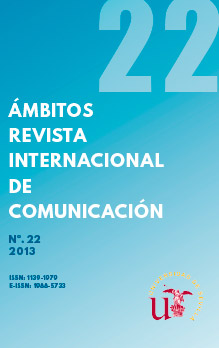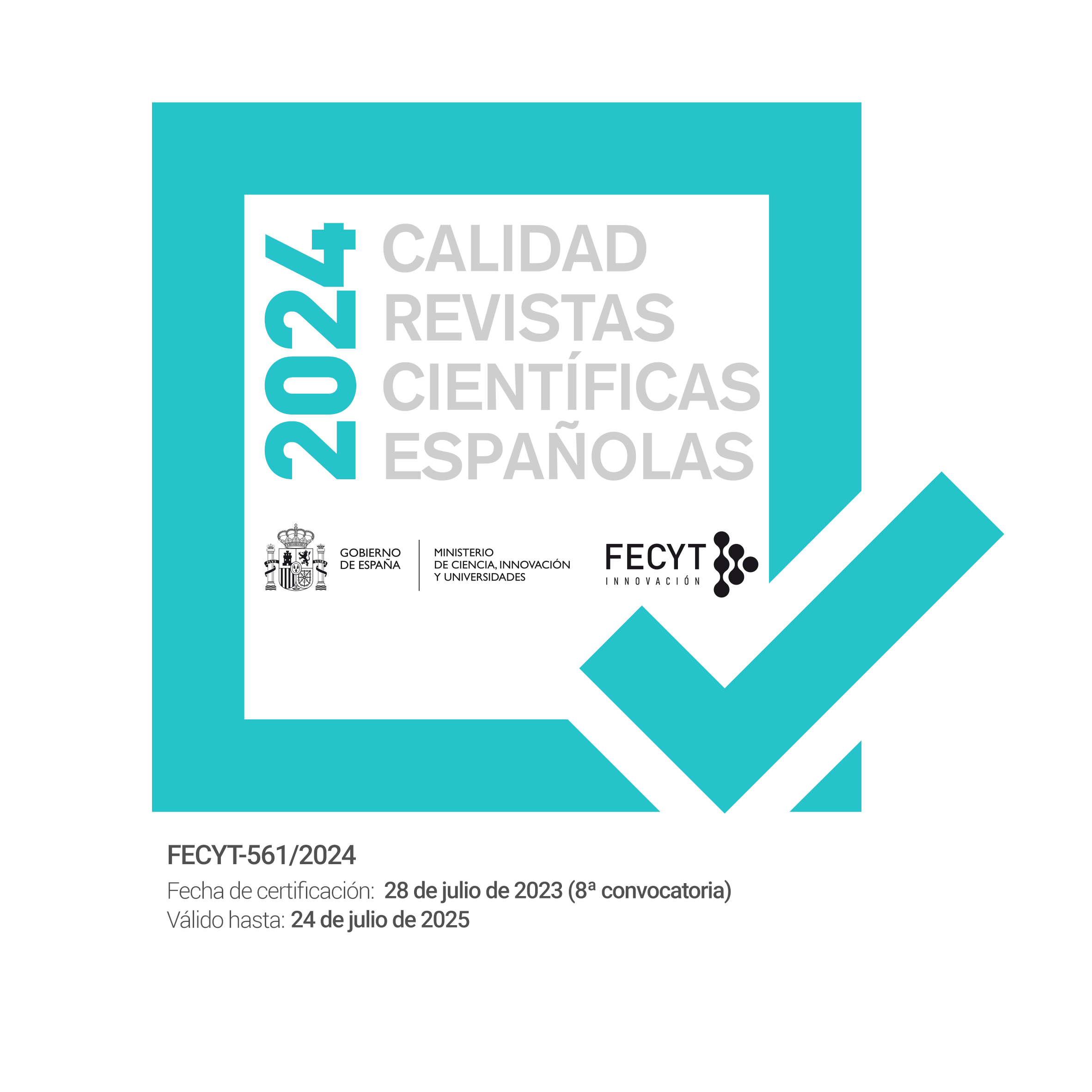Investigación sobre el grado de competencia mediática de los ciudadanos aragoneses
Palavras-chave:
Dimensiones, competencia mediática, alfabetización audiovisual, ciudadanos, Aragón.Resumo
En el ámbito de la investigación en comunicación, no existen precedentes de análisis de las competencias que poseen los ciudadanos para interpretar los mensajes de manera reflexiva y crítica y poder expresarse con unos mínimos de corrección y creatividad en el ámbito audiovisual. En este artículo, presentamos los resultados de una investigación en la que evaluamos el nivel de competencias que posee la población aragonesa en esta área. Con este objetivo, hemos seguido las dimensiones propuestas en el informe Competencias en Comunicación Audiovisual, realizado por el Consejo del Audiovisual de Catalunya y consensuado por expertos internacionales en materia de educomunicación.
Downloads
##plugins.generic.paperbuzz.metrics##
Referências
AGUADED, J. I.; FERRÉS I PRATS, J.; CRUZ DÍAZ, M. R., et al. (2011): El grado de competencia mediática en
la ciudadanía andaluza. Huelva: Grupo Comunicar y Universidad de Huelva, ISBN 978-84-937316-2-5.
BOE: “Ley 7/2010, de 31 de marzo, General de la Comunicación Audiovisual”. (2010), nº 79, pp. 30157-30209.
DCMS (2001): A general statement of policy by the department for culture, media and sport on media literacy
and critical viewing skills. UK: Department for Culture, Media and Sport Broadcasting Policy Division.
EUROPEAN COMMISION: Study on Assesment Criteria for Media Literacy Levels. A comprenhensive view of
the concept of media literacy and and understanding of how media literacy levels in Europe should be assessed.
EAVI for the European Commision: Bruselas, 2009. [Consulta: 15 diciembre 2012].
_______ Media literacy: do people really understand how to make the most of blogs, search engines or
interactive TV?. European Commision: Bruselas, 2007. [Consulta: 15 octubre 2011].
<http://ec.europa.eu/avpolicy/media_literacy/consultation/index_en.htm>
FERRÉS I PRATS, J; PISCITELLI, A.: “La competencia mediática: propuesta articulada de dimensiones e
indicadores”, Comunicar, nº 38, V. XIX, (2012), pp. 75-82.
_______ GARCÍA MATILLA, A.; AGUADED GÓMEZ, J. et al. (2011): Competencia mediática. Investigaciónsobre el grado de competencia de la ciudadanía en España. Madrid: Ministerio de Educación, ISBN 978-84-369-
-3.
_______ y SANTIBÁÑEZ, J. (2011). Informe de investigación Competencia mediática. Investigación sobre el
grado de competencia de la ciudadanía en la Comunidad Autónoma de La Rioja. Huelva: Grupo Comunicar y
Universidad de La Rioja, ISBN 978-84-937316-3-2.
_______ “La competencia en comunicación audiovisual: Propuesta articulada de dimensiones e indicadores”,
Quaderns del CAC, nº. 25, (2006), pp. 9-17. Barcelona: CAC. [Consulta: 21 julio 2011].
<http://www.cac.cat/pfw_files/cma/recerca/quaderns_cac/Q25_ES.pdf>
UE: “Competencias clave para el aprendizaje permanente”. Recomendación del parlamento europeo y del
consejo, de 18 de diciembre de 2006, sobre las competencias clave para el aprendizaje permanente. Diario
oficial l 394, de 30.12.2006.
UNESCO: Educación y Alfabetización Mediáticas. Unesco y Alianza de las Civilizaciones. 2011. [Consulta: 4
enero 2012]. <http://www.aocmedialiteracy.org/index.php?option=com_content&task=view&id=3&Itemid=4>
Downloads
Publicado
Como Citar
Edição
Seção
Licença
Ámbitos. Revista Internacional de Comunicación é um jornal de acesso aberto, o que significa que todo o conteúdo está disponível gratuitamente para o usuário ou sua instituição. Os usuários podem ler, baixar, copiar, distribuir, distribuir, imprimir, pesquisar ou vincular ao texto completo dos artigos, ou utilizá-los para qualquer outra finalidade lícita, sem solicitar permissão prévia da editora ou do autor. Esta definição de acesso aberto está de acordo com a Iniciativa de Acesso Aberto de Budapeste (BOAI).

A menos que seja observado o contrário, todo o conteúdo da edição eletrônica é distribuído sob uma "Licença Internacional Creative Commons Attribution-NonCommercial-ShareAlike 4.0". Você pode consultar a versão informativa e o texto legal da licença aqui. Isto deve ser expressamente declarado desta forma, quando necessário.
No caso de aceitação do manuscrito, os autores cedem os direitos da obra para sua publicação à Ámbitos. Revista Internacional de Comunicación sob o contrato de licença Attribution-NonCommercial-ShareAlike 4.0 International (CC BY-NC-SA 4.0). Os autores retêm os direitos autorais e terceiros estão autorizados a copiar, distribuir e fazer uso da obra, desde que cumpram os termos e condições estabelecidos na licença
- Cite a autoria e a fonte original de publicação (revista, editora e URL da obra).
- Não utilizá-los para fins comerciais.
- Se você remixar, transformar ou criar a partir do material, você deve liberar suas contribuições sob a mesma licença que o original.
Mais informações podem ser encontradas em
https://creativecommons.org/licenses/by-nc-sa/4.0/deed.es
- Resumo 160
- PDF (Español (España)) 111


















